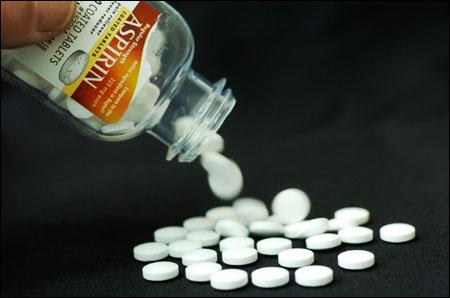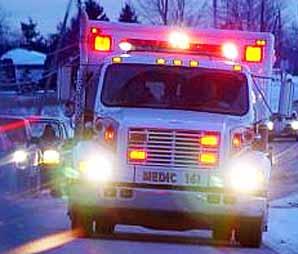
Blood
Clots/Stroke - They Now Have a Fourth Indicator, the Tongue
STROKE:
Remember the 1st Three Letters.....
S T. R.
STROKE IDENTIFICATION:
During a BBQ, a woman stumbled and took a little fall - she assured everyone
that she was fine (they offered to call paramedics) ....she said she had just
tripped over a brick because of her new shoes.
They got her cleaned up and got her a new plate of food. While she appeared a
bit shaken up, Jane went about enjoying herself the rest of the evening.
Jane's husband called later telling everyone that his wife had been taken to
the hospital - (at 6:00 pm Jane passed away.) She had suffered a stroke at the
BBQ. Had they known how to identify the signs of a stroke, perhaps Jane would
be with us today. Some don't die. They end up in a helpless, hopeless
condition instead.
It only takes a minute to read this.
A neurologist says that if he can get to a stroke victim within 3 hours he can
totally reverse the effects of a stroke...totally. He said the trick
was getting a stroke recognized, diagnosed, and then getting the patient
medically cared for within 3 hours, which is tough.
RECOGNIZING A STROKE
Thank God for the sense to remember the '3' steps, STR. Read and Learn!
Sometimes symptoms of a stroke are difficult to identify. Unfortunately, the
lack of awareness spells disaster. The stroke victim may suffer severe brain
damage when people nearby fail to recognize the symptoms of a stroke.
Now doctors say a bystander can recognize a stroke by asking three simple
questions:
S *Ask the individual to SMILE.
T *Ask the person to TALK and SPEAK
A SIMPLE SENTENCE (Coherently)
(i.e. It is sunny out today.)
R *Ask him or her to RAISE BOTH
ARMS.
If he or she has trouble with ANY ONE of these tasks, call emergency number
immediately and describe the symptoms to the dispatcher.
New Sign of a Stroke -------- Stick out Your Tongue
NOTE: Another 'sign' of a stroke is this: Ask the person to 'stick' out his
tongue. If the tongue is 'crooked', if it goes to one side or the other
that is also an indication
of a stroke.
A lifesaving idea
below?
There are many that
will not consent to call an ambulance (They don't want to wake up their
neighbors, they don't want the terrifying red lights blaring through their
windows etc.) and in fact there are some that refuse to go to a
hospital. There are clinic facilities but they are not always open.
Nights, weekends etc. As far as your Doctor catching him in is a
shot in the dark, we all know that.
I myself have a game
plan in case of a threat. Rather than wait for an ambulance, my plan
(depending on the circumstances) is
to go to the ambulance. Do you know where your closest emergency fire
station is? You should. In fact it wouldn't be a bad idea to get
in the car some day and chart a path to it, the quickest safest route.
These fire stations
have state of the art equipment, they have ambulances that would be the
best transport to the hospital if needed and ambulances get priority,
when pulling into an emergency room, did you know that? rather than driving to
a hospital yourself.
The personnel at
these facilities are top draw EMS trained and would be able to accurately
diagnose, temporarily treat the patient and make an accurate judgment as to
what to do. (My guess is EMS facilities have meds to temporarily serve a
potential stroke victim)
Now again it may be
difficult getting the patient to agree to a transport anywhere. This is
the major problem you will have in this dangerous issue and one you had better
prepare yourself to deal with. Just think of the woman in the above
narrative that died because she thought she was o.k. and convinced her husband
that she was o.k. You have any indications of a heart attack or a stroke
you must seek medical attention A.S.A.P.
What I would tell the
possible victim even after the administering of a low dose aspirin, that you have someone
that has medications and could check them out real quick, no sweat.
You would have to drive them there. Tell a white lie, tell
them it is a friend. You don't have to tell them it is the fire station if
you don't want to, as they will find out soon enough when you pull into
the station. When you pull in just tell them to sit tight and you go into the station
and alert one of the staff. I am sure they will come out to your vehicle
and make a judgment to some degree. It most likely would involve vital
signs etc. From there it is their call and an ambulance would be real
handy.
Aspirin
Conclusions
 Aspirin
therapy increases the risk of hemorrhagic stroke. There is no on the
spot indication especially from a laymen as to what type of a stroke a victim
may have had. Serious medical tests are the only barometer.
Aspirin
therapy increases the risk of hemorrhagic stroke. There is no on the
spot indication especially from a laymen as to what type of a stroke a victim
may have had. Serious medical tests are the only barometer.
However, the overall benefit
of aspirin use on myocardial infarction and ischemic stroke may outweigh its
adverse effects on risk of hemorrhagic stroke in most populations.
In the case of a clear cut heart
attack and a fairly good sized victim (over a 150 lbs a 325 mg. aspirin may be
appropriate and we would suggest on your next visit to your personal Doctor
that you ask him/her what dosage they would recommend for you personally in
the case of a clear cut heart attack, shortness of breath, pain in the arm
etc. In my particular case with a very low platelet count aspirin taken
on a regular basis and in an emergency may not be appropriate. Your Doctor
has your latest blood readings. This is his call.
Of course if you are dealing with a
pedestrian you don't have his/her information although it may not be a bad
idea to ask him/her whether they are on blood thinners in case you have to
make a risky decision.
Rather than to deal with the problems
of a dosage that could be too high, a small woman, a child, a victim that
could be on coumadin (a blood thinner)and vulnerable to a hemorrhagic stroke I
personally would be very conservative and instead of carrying 325 mg aspirin
in my tote bag, I would carry the 81 mg like the St. Joes and be prepared to
administer more than 1 pill. In fact with our new thinking we will be
purchasing 4 bottles of the 81 mgs aspirin, one for each of our sports bags
and one for each of our vehicles.
Now aspirin will go down hill in an
open bottle. It will lose its pop. We stress to keep the bottles
that you have on hand for an emergency
sealed.
Even then I would rotate them every so often, once a year perhaps.
If I personally was faced with a
victim and the victim could be me, and there was symptoms of a clear cut
cardiovascular event, being 175 lbs I would take either a 325 or if I just had
81s I would take 2 of them because I know because of my lifestyle my blood is
running thin.
In fact I would chew them to make
them immediately available.
 Now
how you would act with a victim of either a heart attack or a stroke will be
up to you. We are not in the position to advise you. Emergencies
happen. Ambulances are not always prompt, the closest EMS facility and
their vehicles may be out on calls and they have to send an ambulance from a
distant station.
Now
how you would act with a victim of either a heart attack or a stroke will be
up to you. We are not in the position to advise you. Emergencies
happen. Ambulances are not always prompt, the closest EMS facility and
their vehicles may be out on calls and they have to send an ambulance from a
distant station.
Having dosage information on hand to
the EMS station or arriving ambulance is critical and they may have a means to check
for the possibility of a heart attack, a hemorrhagic strokes or even a ischemic stroke where aspirin could be recommended.
This
information is intended to heighten awareness of potential health care
alternatives and should not be considered as medical advice. See your qualified
health-care professional for medical attention, advice, diagnosis, and
treatments.
